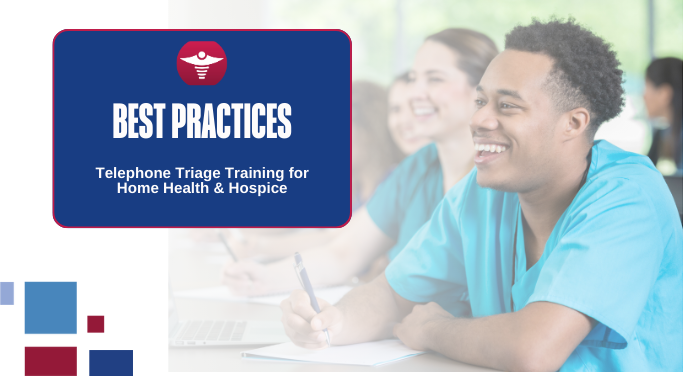The patient experience is at the heart of hospice care, especially during the vulnerable moments at the end of life. Timely access to compassionate, skilled support is essential not only for managing physical symptoms but also for ensuring emotional comfort for both patients and their families. The following stories illustrate how a simple difference in response time can dramatically impact the quality of care and the experience of those involved.
Story 1: A Long, Worrisome Wait
It was 10:30 p.m. when Maria noticed her father, Luis, grimacing in pain. He had been battling advanced lung cancer, and though the hospice team had been managing his symptoms well, tonight, something was different. The medication didn’t seem to help, and his breathing became labored. Worried, Maria called the hospice agency. But it was after office hours, and her call went to the non-clinical answering service that the agency employed. She left a message, anxiously waiting for a return call.
Minutes stretched into what felt like hours. Maria checked the clock repeatedly, watching her father struggle in the dim light of his bedroom. After 30 minutes, she called again, but still no answer. Finally, after 45 minutes, a nurse returned the call, apologizing for the delay. By the time the nurse arrived at the house, her father’s condition had worsened. While the nurse was able to administer medication to ease his pain, the distress of waiting so long had taken a toll on Maria. She felt helpless during those agonizing moments, wishing she could have done more.
Story 2: Immediate Comfort and Relief
It was just past 10 p.m. when James felt a familiar ache in his chest. His daughter, Sarah, was by his side, watching over him as usual. James had end-stage heart failure, and while the hospice team had done wonders managing his pain, tonight was different. His symptoms seemed to be intensifying, and Sarah could see his discomfort in his face.
She quickly called the hospice agency. Although it was after hours, Sarah was immediately connected to a nurse on-call. The nurse calmly asked about James’ symptoms and reassured Sarah that help was on the way. With direct access to James’ electronic medical records, the triage nurse could advise and increase medication administration. She then called back in 30 minutes to ensure that the new, appropriate pain medication dose had relieved James’ pain. The triage nurse also advised the field nurse on-call of the change in condition, who determined that a home visit would be made in the morning. Sarah exhaled in relief, feeling empowered by the timely support. She sat back down at her father’s bedside, knowing that his pain had been eased.
Conclusion: The Value of Speedy Access
In both stories, the patients’ families were concerned for their loved ones, but the timeliness of the nurse’s response made a world of difference. When Maria had to wait 45 minutes, the emotional toll and sense of helplessness intensified, leaving her feeling unsupported. In contrast, Sarah’s quick connection to a nurse brought not only pain relief for her father but also peace of mind for herself.
Fast, reliable access to hospice care isn’t just about alleviating physical symptoms—it enhances the overall experience for both patients and caregivers. When pain is managed swiftly, the patient’s quality of life improves, and the caregiver feels reassured and supported. This reduces stress for everyone involved and helps ensure that the final days of a patient’s life are dignified and comfortable.
The Impact of Nurse Triage in Hospice Care
Access to nurse triage after hours can make an enormous difference in the hospice experience. When families can reach a nurse quickly, symptoms are managed before they escalate, providing immediate relief and maintaining the patient’s comfort. This upholds the hospice mission of ensuring dignity in a patient’s final moments. By providing prompt medical and emotional support, hospice teams and nurse-based triage solutions empower families to focus on spending meaningful time with their loved ones, confident that their needs will be addressed with urgency and compassion.
Contact Us for a Consultation
Ready to optimize your triage process? Reach out to us today for a consultation tailored to your needs. Let’s elevate your patient care together.
More From The Blog
Patient needs don’t end with the workday and care shouldn’t either. But sustaining continuous care across all hours is far from simple. The real challenge for home-based care organizations is not in recognizing this truth, but rather in designing systems that can support continuous, clinically sound care across all hours and the full episode of [...]
Post-acute care has been shaped these past years by by workforce shortages, evolving regulatory and payment models, and growing expectations around patient experience. Provider organizations now face a critical inflection point. The decisions leaders make in the next 12 months will materially affect quality care, organizational growth, staff experience, and financial stability for years to [...]
Post-acute triage call volumes continue to rise across hospice and home health, driven by higher census, caregiver anxiety, increased acuity at home, and symptom flare-ups. Field nurses are stretched thin, documentation requirements increase regularly, and families expect and deserve immediate clinical guidance, not voicemail. The confluence of these factors mean agencies are paying closer attention [...]









